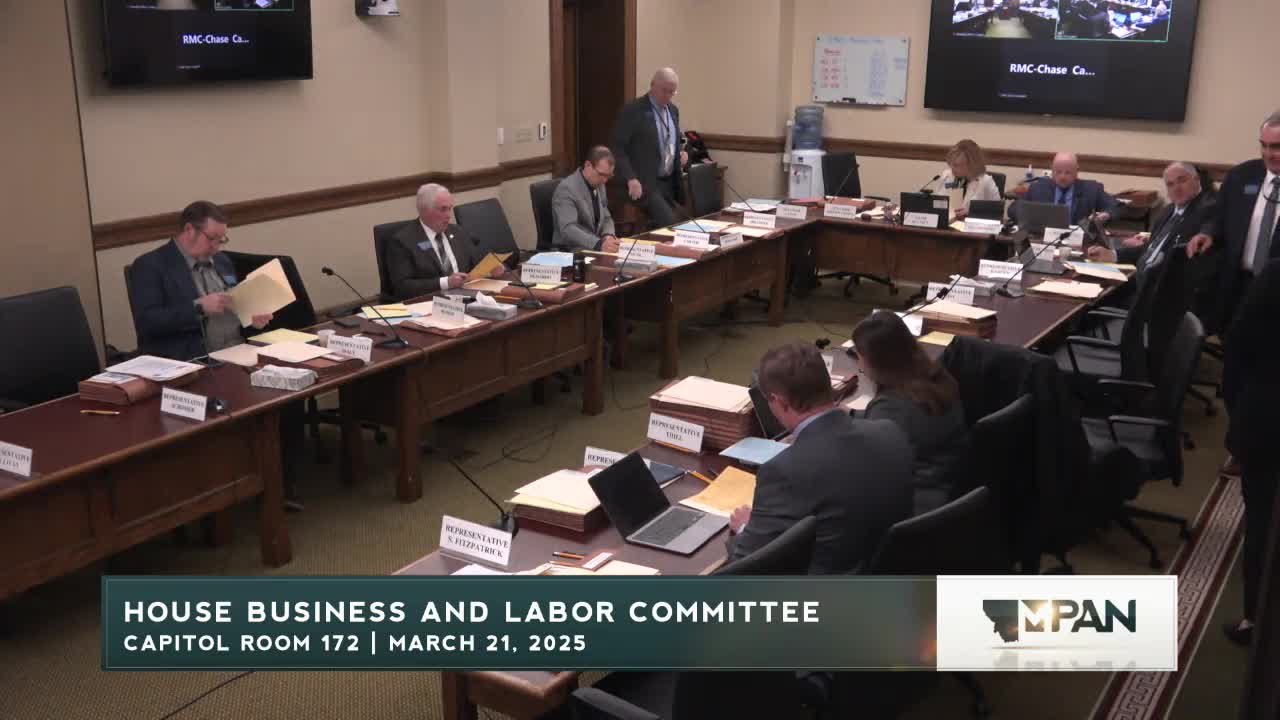Heated hearing over bill to allow narrow cigar bar endorsements under Montana’s Clean Indoor Air Act
Get AI-powered insights, summaries, and transcripts
Subscribe
Summary
Senate Bill 150 would add a narrow cigar-bar endorsement for licensed all-beverage establishments meeting ventilation, humidor and other conditions; public-health groups and medical organizations opposed the change, saying it would undermine the Montana Clean Indoor Air Act and endanger workers.
Senator Wiley Galt presented Senate Bill 150 to create a narrowly tailored endorsement that would allow "premium" hand-rolled cigar smoking inside certain freestanding all-beverage licensed establishments if they meet humidor, ventilation and other requirements.
Galt said the bill is intended to be narrow and noted other states allow cigar bars. He and supporters emphasized a package of conditions: a $200 endorsement fee, a required humidor, freestanding (not shared) building requirements and substantial dedicated ventilation or air handling systems. The sponsor and proponent witnesses described industry-standard air systems with large outside-air intake, multiple air exchanges per hour and additional filtration or ionization equipment.
Proponents included the Hospitality and Development Association of Montana and industry witnesses who said the endorsement would support small-business growth and tourism and would be limited to premium cigars (no filters or tips) sold and consumed on-site. Jesse Luther of the Hospitality association said the exemption would be narrow and put Montana on par with many other states.
Opponents included public-health groups and medical organizations. Montana Shades vs. Big Tobacco, the American Heart Association, the American Lung Association, the Montana Tavern Association (which said it opposed the bill in its present form), the Montana Medical Association and the American Cancer Society Cancer Action Network urged the committee to reject SB150. Opponents argued the bill would pierce Montana’s Clean Indoor Air Act, exposing employees and patrons to secondhand smoke and creating enforcement and compliance problems. Jackie Simmons of the American Heart Association said exemptions risk signaling that cigar smoke is less harmful than cigarette smoke; the American Lung Association noted that ventilation and filtration do not eliminate the health risk from secondhand smoke.
The Montana Department of Public Health and Human Services’ Tobacco Use Prevention Program and the Department of Revenue Alcoholic Beverage Control Administrator were present as informational witnesses; DPHHS noted it enforces the Clean Indoor Air Act. Committee questions focused on how many cigar lounges exist in the state today (witnesses said private cigar lounges exist but they are generally private clubs without an on-premise alcohol license) and how compliance could be enforced (DPHHS staff said determining whether smoke observed was from cigars purchased on-site or from other tobacco products would be challenging).
The sponsor said he planned amendments to tighten ventilation and employee-protection language, and he described the bill as intentionally narrow; several opponents urged the committee to preserve the current smoke-free workplace law. The hearing record in the provided transcript does not show a committee vote on SB150.
